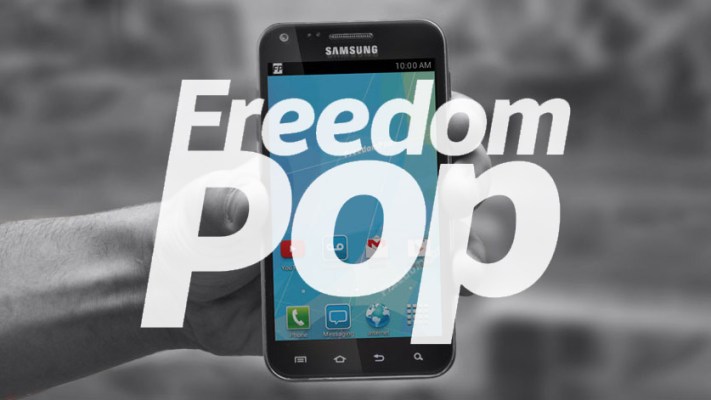FreedomPop, the startup out of L.A. that has been going after U.S. carriers’ wireless business with a “free” basic mobile offering, is now bringing a SIM-only version of its service to Europe and beyond. Today, the company announced that it will kick off first with FreedomPop in Belgium, with rollouts also in the UK, Germany, France and Spain, as well as to markets in the Pacific Rim, due “in the coming months”; there is no specific date given for the actual debut. In total, there will be seven more countries live by the end of this year, CEO Stephen Stokols tells me.
“We will lead with the same plan we offer in US: 500 MB free, 200 voice minutes free, 500 texts free,” he says. “The paid plan pricing will be competitive but not locked down yet.” The service, he says, will cover both mobile handset-based services as well as mobile broadband.
Dutch carrier KPN subsidiary BASE will provide the network for FreedomPop in Belgium, with further carrier partners getting announced soon.
FreedomPop will be taking a slightly different approach as it moves in to tackle the Old World: In its U.S. business, which runs on the Sprint network, FreedomPop offers consumers the option of bringing in their own network-compatible handsets, or buying one through them (a range that includes Samsung and HTC devices, as well as a fully encrypted “privacy phone“).
Here, the mantra seems to be light and simple: for now it will be SIM-only plans with no devices.
There are a couple of reasons for this decision, Stokols tells me: consumer culture and being able to move fast. “This is a key point about our international expansion,” he says. “Euro markets are not as device-centric as the U.S. [so] we will be SIM only initially, which allows us to turn on new markets quickly, and we don’t have to deal with device procurement and logistics.”
There is some truth to this, to an extent: in the countries where FreedomPop is going first, the smartphone tipping point has well passed, and in many of them many carriers also offer SIM-only plans, knowing that there is a critical mass of users with their own handsets and wiling to make quick changes from one carrier to another.
On the other, the market for winning users here is not hugely different in the U.S., with many carriers still fiercely competing against each other to grab the exclusive on a hot new device. That, effectively, will be a bunfight that FreedomPop will be sitting out of.
This, effectively, means that while FreedomPop may be disruptive, the critical mass and larger impact of what it is trying to do may take longer to have an impact. FreedomPop has been trying out a lot of different models to see what kind of service plans might resonate most with its users — including plans to pay-by-the-app, as I reported in June. So far, the company has picked up some 250,000 users in the U.S., a decent number but nowhere near the tens of millions of consumers still tied to the larger network-based carriers.
Stokols tells me that FreedomPop settled on Belgium first for a number of reasons. It wanted to pick a small market with high smartphone penetration and good network speeds first so that it could work out the kinks before tackling larger territories. It also wanted a place that had high credit card penetration; the company works on the premise of a “freemium” service, where a very basic offering is free and then users are enticed to pay for extras like faster speeds, more data and so on.
Equally important, he says, was picking a place with good wholesale pricing — Belgium is not a stranger to MVNOs — and to partner with a large carrier with operations elsewhere. That potentially, points to FreedomPop working with KPN or KPN-friendly partners elsewhere.
One thing that is different about Europe compared to the U.S. is the focus on “roaming” — that is, taking your device from your home country into another one. Consumers in Belgium, a small country in the heart of Europe, will be particularly strong users of services with roaming allowances.
Stokols tells me that FreedomPop will “have great roaming rates.” Although he would not specify how these will work, he did offer a hint: “possibly the ability to extend free plan into other countries, e.g. roaming from Belgium to Italy, you can still use your free data.”
The move to Europe is something of a homecoming for Stokols and FreedomPop: the startup is backed by $16.8 million of funding from European VCs Mangrove (whose partners include early Skype execs) and DCM Capital, and Stokols spent a number of years as an executive with BT in the UK.
